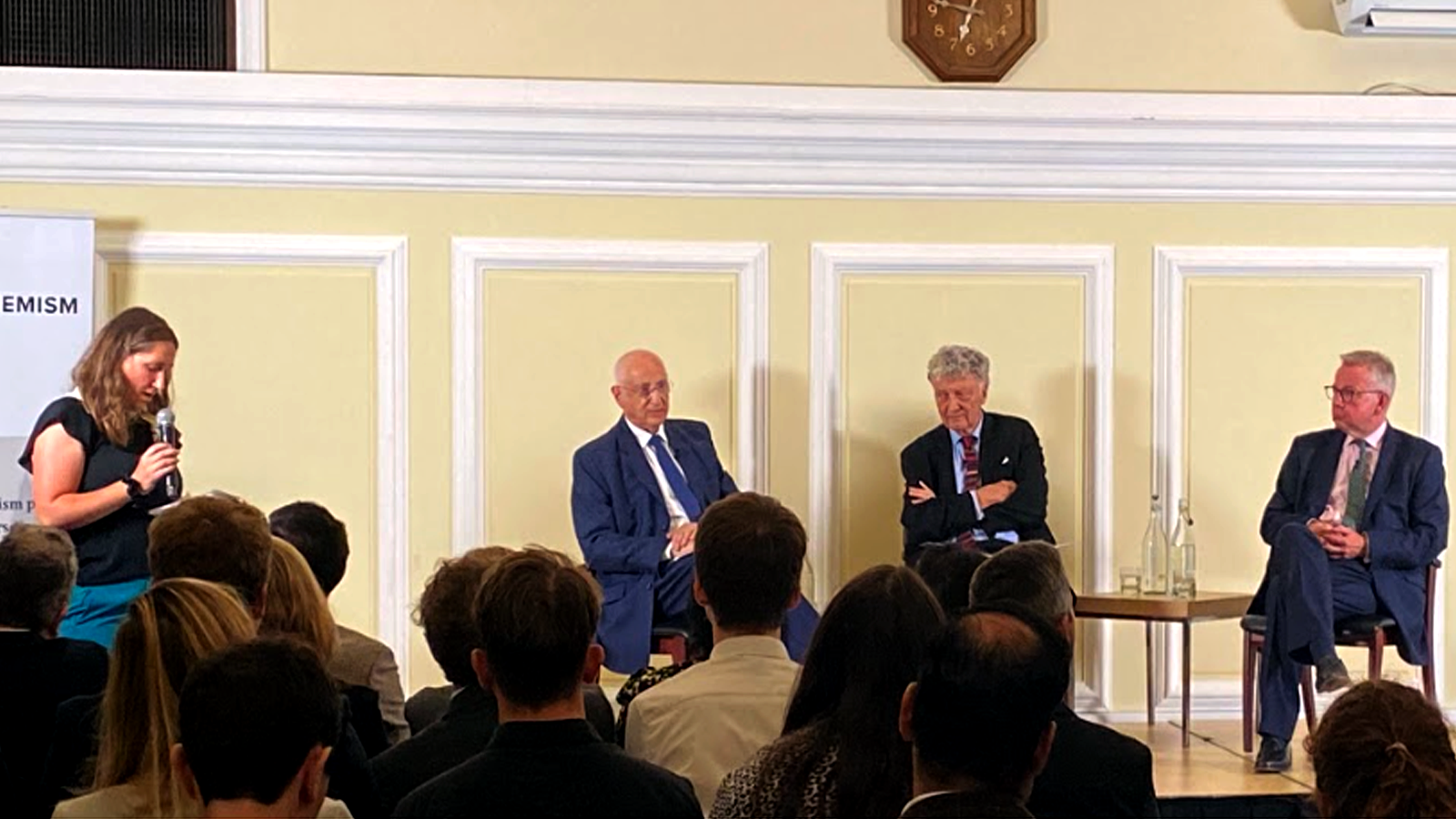Earlier this month CEG held its weeklong Young Leaders in National Security Fellowship. Amidst the political and constitutional upheaval of a new Prime Minister and the passing of the Britain’s longest serving monarch, the fellowship went ahead at a deeply significant time for the country. The success of the week was in no small part ensured by the generous patronage of Lord Carlile of Berriew KC, the former Independent Reviewer of Counter Terrorism Legislation, and William Shawcross CVO, the Independent Reviewer of Prevent.
We were fortunate to have an incredibly wide range of speakers from the field, including politicians, former terrorists and extremists turned de-radicalisers, political advisors and commentators, senior civil servants, those in Prevent and counter-terrorism policing, academics, writers, and public intellectuals. This allowed our fourteen fellows access to an unprecedented network of highly influential individuals, and the opportunity to have free and open off the record discussions about some of the most difficult questions in counter-extremism and counter-terrorism.
This year, the fellowship also became a platform for generating public debate, with comments by speakers at our public event making headlines in the press. Our public event with Lord Carlile and Rt Hon Michael Gove MP in conversation with William Shawcross drew a prestigious audience, and included several members of the press. This was an opportunity to bring together three figures with decades of expertise between them to hear their reflections on how far we have come in the fight against terrorism, and how far we still have to go.
Two points of discussion that made national headlines were on the West’s collective failure to combat blasphemy inspired violence, and the degree to which fears around political correctness may be stifling the national counter-radicalisation strategy, Prevent.
In the first instance, Shawcross’s comments on how the intimidation of a school teacher in Batley was indicative of the failure to get to grips with the threat to free speech from accusations of blasphemy led to this story in The Telegraph.
This was fitting, as free speech was a recurring theme throughout the week. Speakers and fellows debated the challenge of blasphemy violence, as well as the question of how counter-extremism efforts can effectively tackle radicalisation without unduly infringing on the freedom to express controversial or outspoken views.
Some speakers also reflected on whether politicised accusations of racism and ‘Islamophobia’ might undermine our confidence in how we go about tackling Islamist extremism. This became the subject of a second headline, when Michael Gove voiced his concern that fears about such accusations had meant that civil servants working on Prevent had not been given the tools to effectively tackle Islamist extremism. Gove explained that the UK was highly effective at counter-terrorism policing, yet far weaker on reducing extremism (an observation with which many in the field would concur).
These two matters are among the most pressing for this field. It was a heartening sign of the quality of conversation during the Young Leaders Fellowship that these were the questions being grappled with, rather than avoided.
After a week of incredibly in-depth discussion and a hard thinking we have a renewed sense of gratitude for the work being done by all those who came to speak on the fellowship and will be watching with great interest to see what our fellows and speakers will be going on to do in the years to come.

